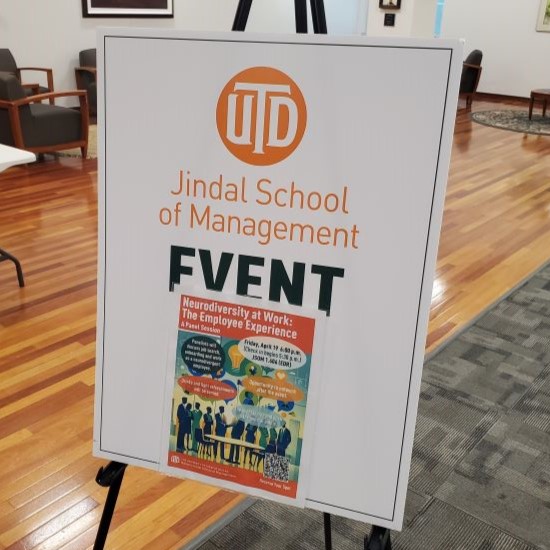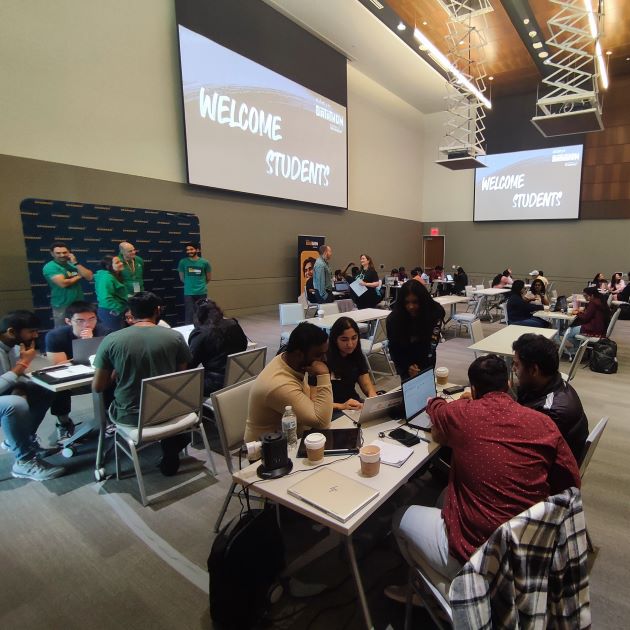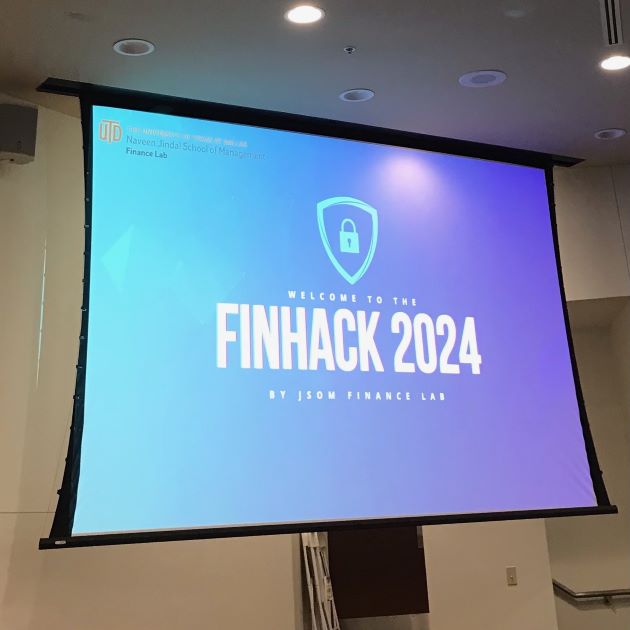Herbert D. Weitzman Institute for Real Estate’s executive speaker series, held at the Naveen Jindal School of Management Oct. 4, explored the current state of the economy and its impact on the real estate industry.
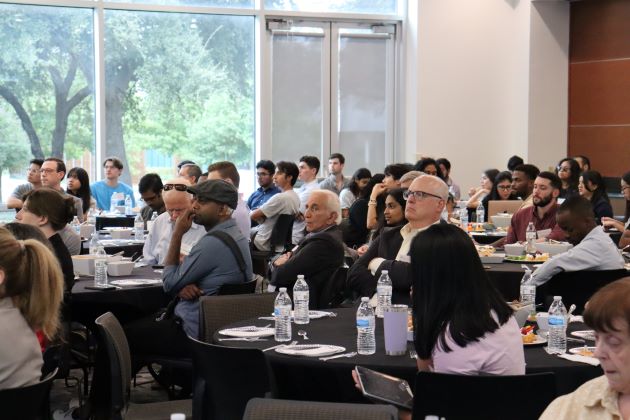
The institute, housed in the Jindal School, was established with a $3 million legacy gift from Weitzman and his wife, Donna. Their gift allowed the university to offer more scholarships and financial assistance to qualified real estate students, providing training, mentoring, career opportunities and the possibility of internships.
“We don’t want these kids to make small plans,” said Herb Weitzman, who attended the event. “We want them to dream big and do big things, and we want them to do big things in real estate.”
Herb is executive chairman of Weitzman, a retail-focused real estate services firm he started in 1989.
Julie Lynch, director of real estate programs at the Jindal School and an associate professor of Practice in the Finance and Managerial Economics Area, was moderator of the program. Speakers were Dr. Wayne Gearey, a lecturer of geospatial information sciences at the University of Texas at Dallas’ School of Economic, Political and Policy Sciences and chief labor economist in Savills’ Dallas office, and Cody Gibbs, BS’15, MS’16, interim manager of economic initiatives at UT Dallas and a UT Dallas alumnus.
Before the speakers’ presentations, Lynch recognized members of the board of JSOM’s more than 580-member Real Estate Club at UTD who were in attendance.
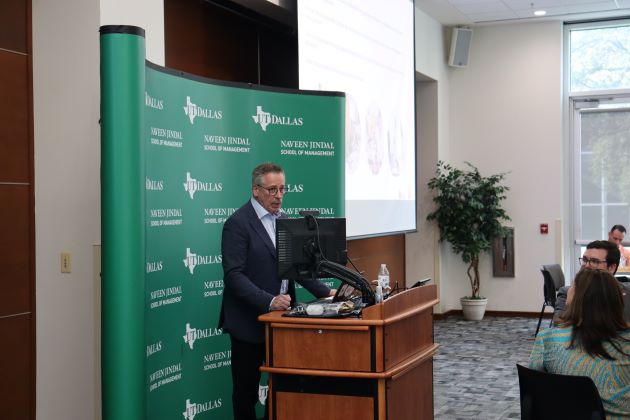
Gearey’s presentation focused on the economy in Dallas-Fort Worth and the country, including changes brought about by the pandemic when employees worked from home out of necessity.
“Manufacturing has been huge and hybrid (work) is here to stay,” he said. “The purpose of office (space) is becoming different.”
According to Gearey, construction spending by manufacturers is up 76% year over year. The growth was driven by the semi-conductor, electric vehicle and clean energy sectors.
His data showed the U.S. labor force participation rate saw heights in 2019 near 63.4%. Following the pandemic, the rate has maxed out near 62.7%.
In DFW, this trend has been the opposite, with labor force participation rates taking only a minor dip in 2020 before growing to a peak of 70.8%.
While some cities across the country are experiencing hiring pressures, D-FW continues to experience an influx of new residents and business relocations that bring new jobs.
During the pandemic companies and workers found working at home could be a viable option. When they were able to return to the office, many employees wanted to continue working from home. The result of that has been the emergence of the hybrid work schedule — employees might work at home a few days a week. That resulted in changes to how much office space is needed and how it is used.
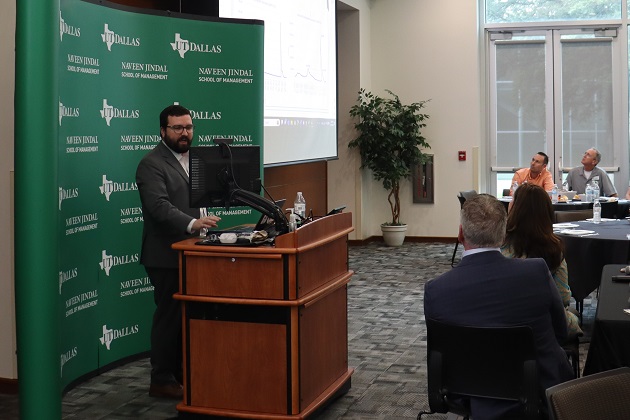
Gibbs pointed to the Human Resources Department at UT Dallas as an example of the changes.
“That department used to take up a whole floor,” he said, “now they’re down to a small corner space and other departments are able to use the (vacated) space.”
Retail spaces also have changed due to the pandemic and online shopping — retailers are expanding, but often in new ways.
“There is a trend back toward going into stores and this will help online sales,” Gibbs said. “You might go into a store, see something you want and order it online. We see things like Ulta stores locating within Target stores and Amazon returns at Kohl’s stores. We are seeing the evolution of services like that.”
Overall, D-FW’s economy has fared better than many other areas due to its affordability, central location and affordable housing prices when compared to other regions.
“We have a much more engaged workforce in D-FW,” Gibbs said. “The labor participation rate is the crown jewel of Texas.
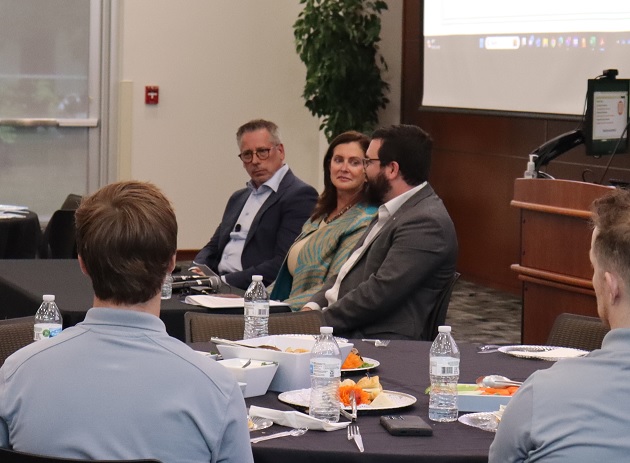
Lynch asked the speakers to predict what might occur in real estate over the next 12 months.
“The Federal Reserve of St. Louis is saying the chances of a recession are 50%, but they predict a soft landing,” Gibbs said.
Interest in artificial intelligence (AI) will continue, Gearey predicted, and it will have an impact on warehouse space.
“There has been (strong) interest in AI — robots and cobots — and they’re stacking them in warehouses,” he said. Cobots, or collaborative robots, are designed to work alongside humans in collaborative workspaces.
Gibbs and Gearey agreed that in-migration to D-FW will continue for the foreseeable future,
“As long as we remain very business friendly this will be a place that people and businesses want to be,” Gibbs said.

